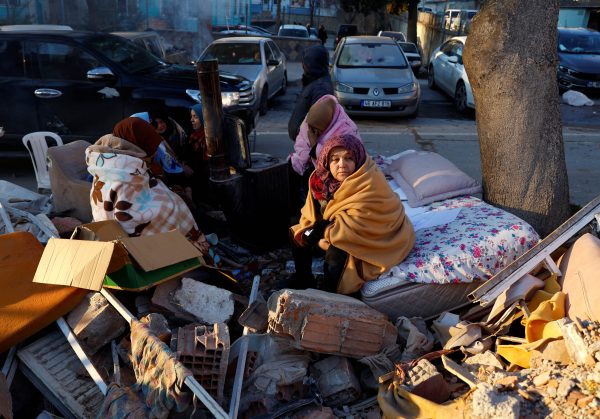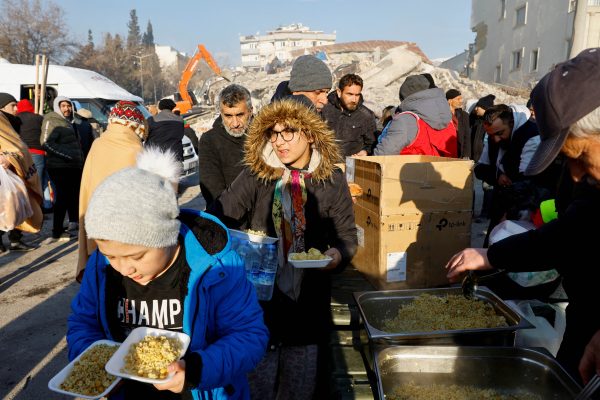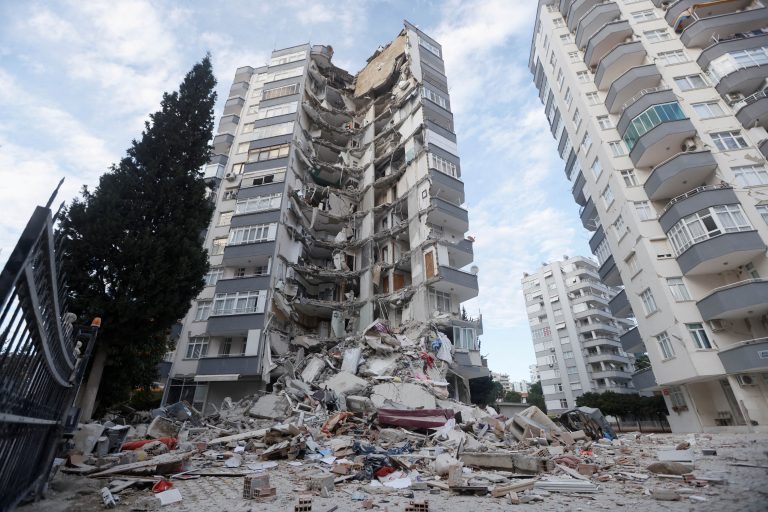Days after two devastating earthquakes ripped through southern Turkey and Syria, rescue workers continue to sort through the rubble of countless toppled buildings searching for survivors as the death toll from the disaster continues to soar.
As of Feb. 7, Reuters reported that the confirmed death toll has surpassed 7,800 as rescuers race against time in harsh winter conditions. The number is expected to continue to climb as the sheer scope of the disaster becomes more and more clear.
Turkish President Tayyip Erdogan has declared a state of emergency in 10 of the country’s 81 provinces, while residents in several damaged Turkish cities expressed anger and despair over what they say is a slow and inadequate response from authorities.
The state of emergency will last for three months and will permit the government to bypass parliament in enacting new laws and to limit or suspend rights and freedoms.
“There is not even a single person here. We are under the snow, without a home, without anything,” said Murat Alinak, whose home in Malatya had collapsed and whose relatives are missing. “What shall I do, where can I go?”
Success
You are now signed up for our newsletter
Success
Check your email to complete sign up
Monday’s magnitude 7.8 quake, followed hours later by a second one almost as powerful, toppled thousands of buildings including hospitals, schools and apartment blocks, injured tens of thousands, and has reportedly left hundreds of thousands of people homeless in Turkey and northern Syria.

Desperate search for survivors
Rescue workers are struggling to reach some of the worst-hit areas, held back by destroyed roads, poor weather and a lack of resources and heavy equipment. Some areas were without fuel and electricity.
With no other choice available, residents are picking through the rubble, sometimes without the most basic tools, in a desperate search for survivors.
In Antakya, capital of Hatay province bordering Syria, rescue teams were thin on the ground and residents picked through debris themselves. People pleaded for helmets, hammers, iron rods and rope.
In Syria, which was already afflicted by a humanitarian crisis following 12 years of civil war, aid officials are voicing concern about the situation unfolding on the ground.
Authorities say some 13.5 million people are affected in an area that spans roughly 450 km (280 miles) from Adana in the west to Diyarbakir in the east and that deaths due to the quakes have been reported as far as 250 km (155 miles) from the epicenter.
“It’s now a race against time,” World Health Organization Director General Tedros Adhanom Ghebreyesus said in Geneva. “Every minute, every hour that passes, the chances of finding survivors alive diminishes.”
Rescuers are toiling day and night as people wait by mounds of rubble desperate to find loved ones alive.
One woman, aged 54 and named Gulumser, was pulled alive from an eight-storey building 32 hours after the quake.
Another woman then shouted at the rescue workers: “My father was just behind that room she was in. Please save him.”
The workers explained they could not reach the room from the front and needed an excavator to remove the wall first.
‘My daughter died in my arms’
Abdulrahman Ali al-Mahmoud who survived the quake in Syria said he lost 20 members of his family all at once, Reuters reported.
“My young daughter died in my arms, and my wife died next to me,” Mahmoud said as he gazed into a void, lying on cushions on the ground and covered in blankets in a makeshift shelter.
“I don’t know who buried my daughter… we wanted to bury her next to her mother, no one was answering us,” he added.
Mahmoud’s family was displaced from Deir al-Zor in eastern Syria during the war to the town of Jandaris.
Mahmoud survived with his two-and-a-half-year-old daughter after his brother-in-law, Salah al-Haji al-Akab, pulled them out.
“We are going to be living in a different reality. Our friends are gone, all our neighbors are gone. I don’t think we want to live anymore,” Akab said as he searched in the rubble of the collapsed building for any sign of survivors.
“Everyone is in shock, no one knows what happened, it feels like a nightmare that we woke up from and found everything in ruins.”

Erdogan visits humanitarian tent city
On Feb. 8, Turkish President Tayyip Erdogan visited a humanitarian tent city near the epicenter in Kahramanmaras, attempting to console victims of the quakes.
In a previous address, Erdogan admitted problems existed in the government’s initial response amid anger from those left destitute and frustrated over the slow arrival of rescue teams.
Erdogan, who faces an election in the coming months, said on his visit that rescue operations were now working normally and promised no one would be left homeless, as the combined death toll across the two countries climbed above 11,000.
As countless people seek temporary shelter from harsh winter conditions, others wait in anguish by piles of rubble where family and friends lay buried. Rescuers are still digging some people out alive, but as time passes the chances of finding survivors diminishes.
The death toll from both countries was expected to increase as hundreds of collapsed buildings in many cities have become tombs for people who had been asleep in the homes when the quake hit in the early morning on Feb. 6.
Reuters contributed to this report.


















